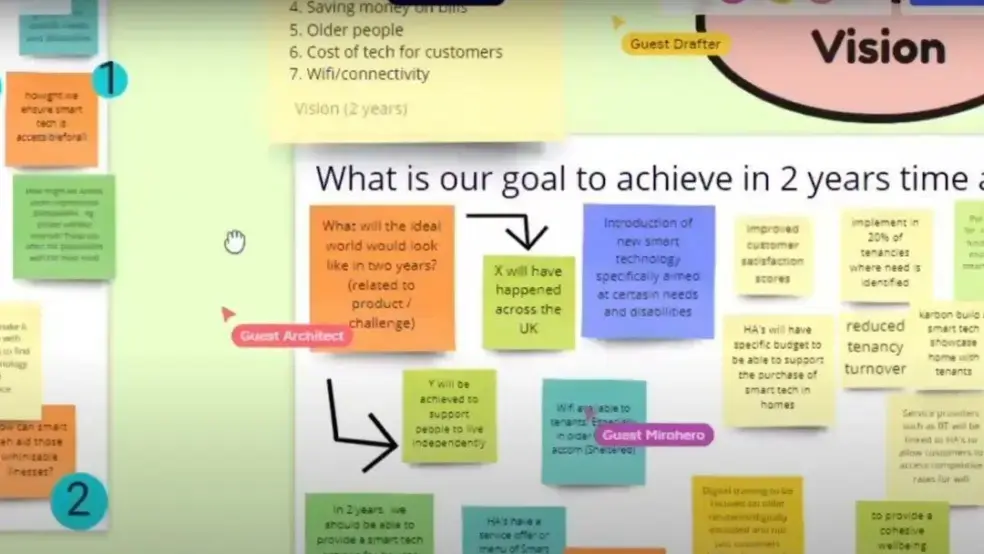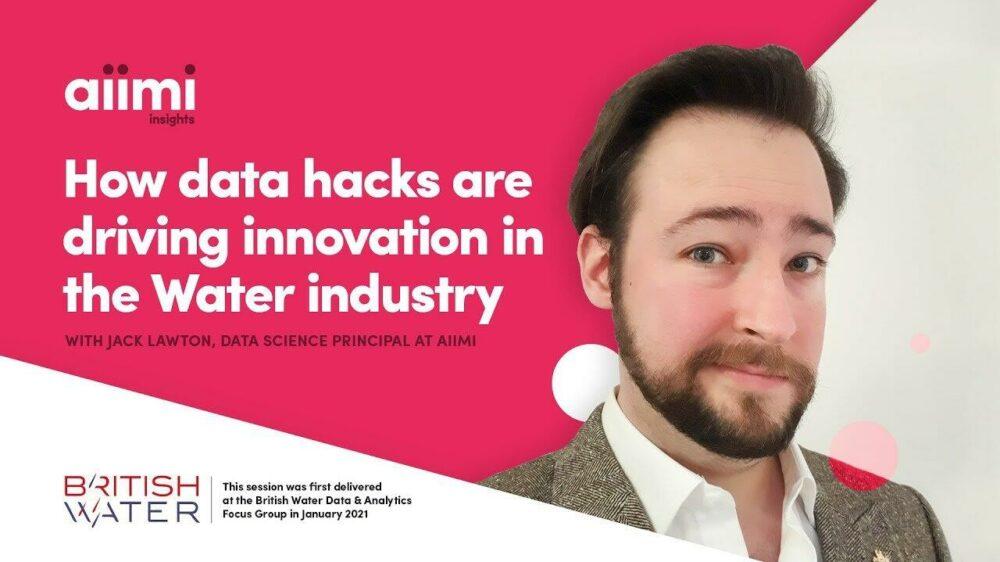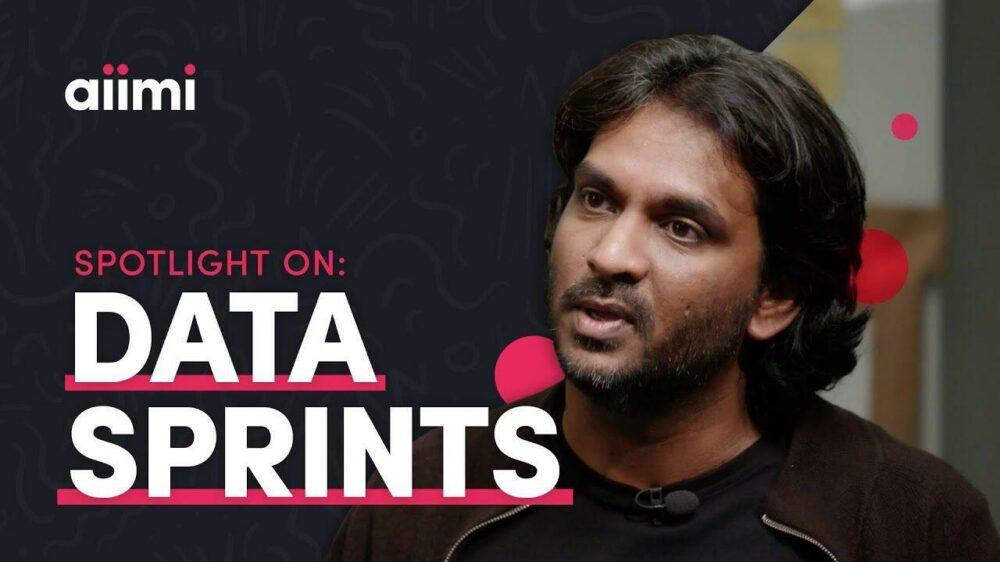What we learnt from 2 virtual hacks, 3 weeks, and 150 people

Michelle Hall, Principal Consultant at Aiimi, and Joanne Finch, Senior UX Consultant at Aiimi, ran two virtual hackathons with four different Aiimi clients, all in the space of a month. Here’s what they learnt.
We know that most business challenges are surrounded by data. That’s where data hacks come in: to unpack the data, discover rich insights, and fast-forward to the best solutions. We love hosting data hacks and data sprints for our clients because we know how well it works – at Aiimi, we use regular Hack Weeks to help develop our AI-based software and data science services.
An enormous amount of time and energy goes into organising a data hack, and we’ve been hosting a mix of virtual and in-person hacks for our clients for years. At the moment, this isn’t a matter of preference – due to ongoing Covid-19 restrictions, all our hacks have been online since March. And as much as we love hosting data hacks and sprints in our purpose-built Hack Zone or getting together in a field and sharing a drink around a campfire, we’ve found there are certain benefits to running a virtual hack. Here are our top tips for hosting an online data hack – and why it’s all worth it.
Our top tips for running a virtual hack
Communicate
This is a big one. You need a solid plan in place that starts at least a month before the event and scales up as it draws closer, from one month out, to two weeks, to the day before, to the first morning. Once the event is underway, you’ll need to send emails each morning and to wrap-up at the end of each day. This is especially important if your hack includes unfacilitated days.
Get everyone engaged
It’s important that everyone involved in your virtual hack is fully engaged, just as they would be with an in-person event. The organisation team needs to be invested in providing a great hack environment for the participants – if they’re just checking a task off their to-do list, you’re better off finding someone else. Equally, your judges and facilitators need to be highly engaged in the event. The facilitators will be the face of any sponsors or client hosts, so you need to be confident they’ll portray a brand image that reflects those organisations.
Keep it structured and simple
It helps to establish uniformity across your event, so the participants get into a routine and know what to expect. This means starting and ending at the same time every day. Ideally, we prefer to run events on consecutive days to keep the momentum going. We’ve found four days is usually enough time to discover data insights and get a good outcome.
Set an agenda - and stick to it
Just like an in-person event, a virtual hack requires a solid agenda. We tend to follow a typical design-thinking approach and keep it as simple as possible:
Understand the challenge statement
Find inspiration
Generate ideas
Narrow down the ideas to agree on an approach and outcome (data model, insight, prototype)
Get stuck in
Presentations and awards
Think about the 'physical' space
It can be helpful to think through your virtual hack as if it were happening in a physical space. For example, you’ll need virtual equivalents of physical information tents and helpdesks. We set up Miro boards to house reference information, used Slack for questions and instant messaging, and ran subject matter expert ‘tents’ using Zoom. We also set up team channels on Slack to support collaboration within each group.
Plan ahead to maximise outcomes
Following a successful hack event, there’ll be ideas and concepts that are worth taking forward. For this to happen, you’ll need ongoing commitment from any sponsors and clients involved. Are there funds in place to move this idea forward? And how will the hack teams be involved if they don’t have an existing relationship with the hack sponsor? Having those conversations before the event puts everyone in a good position to make the most of its outcomes.
You might also like: How to make your Remote Design Sprint a success, by David Ford
Why we love virtual hacks
Firstly, accessibility is automatically increased with an online event. The time and expense of travel and accommodation are no longer a barrier to participation. This opens the door for more people joining the hack from a variety of locations and situations, bringing not only a more diverse group of people, but also greater diversity of thought, which results in better outcomes.
Virtual hacks also enable participants to work on their ideas at times that suit them. This is obviously important if they’re joining from a different time zone, particularly those who are five hours behind or ahead of the host location. It’s also important for people who need to keep a project running during business hours or attend lectures, but still want to participate in the hack and are happy to use their evenings to work on their ideas.
Hosting a virtual event helps you find new ways of bringing everyone together to share what they’ve been working on, which can be trickier to manage in a physical space with large groups. We’ve found online ‘breakout rooms’ are a great way for facilitators and subject matter experts to get around all the teams and work with them in a more hands-on capacity. This also provides each team with another way to work together and keep the lines of communication open.
Recent virtual hacks we’ve hosted
The Water Consumption Data Hack for Anglian Water, SES Water, and Welsh Water: This was the first year that all three water companies came together to deliver a collaborative hack focused on consumption data. In addition to hosting the hack and providing a variety of datasets to participants, we also provided digital badges that they could add to their LinkedIn profiles – hopefully this will support some people in finding new roles in an ever-changing job market.
The Mission Zero Hack at Northumbrian Water’s Innovation Festival: Northumbrian Water’s annual Innovation Festival gathers some of the most innovative minds from the worlds of business, science, engineering, and utilities, and challenges them to tackle real-world problems in a series of hacks and sprints. Aiimi regularly sponsors, organises, promotes, participates in, and facilitates data hacks at the festival, and this year the whole event went virtual. We created a #missionzero brand and promoted the hack, while cleaning up 1GB of fleet and carbon use data. We planned the three-day format and created assets, using design sprint methodology. We used Zoom for breakout rooms and Miro to group and facilitate participants, with an SME ‘tent’ for questions. We finished each day with a round-up and ended the event with a finale of presentations and awards, with all the excitement of an in-person event.
Check out our Data Scientist James Robinson's video all about what happened at #MissionZero.
Stay in the know with updates, articles, and events from Aiimi.
Discover more from Aiimi - we’ll keep you updated with our latest thought leadership, product news, and research reports, direct to your inbox.
You may unsubscribe from these communications at any time. For information about our commitment to protecting your information, please review our Privacy Policy.



